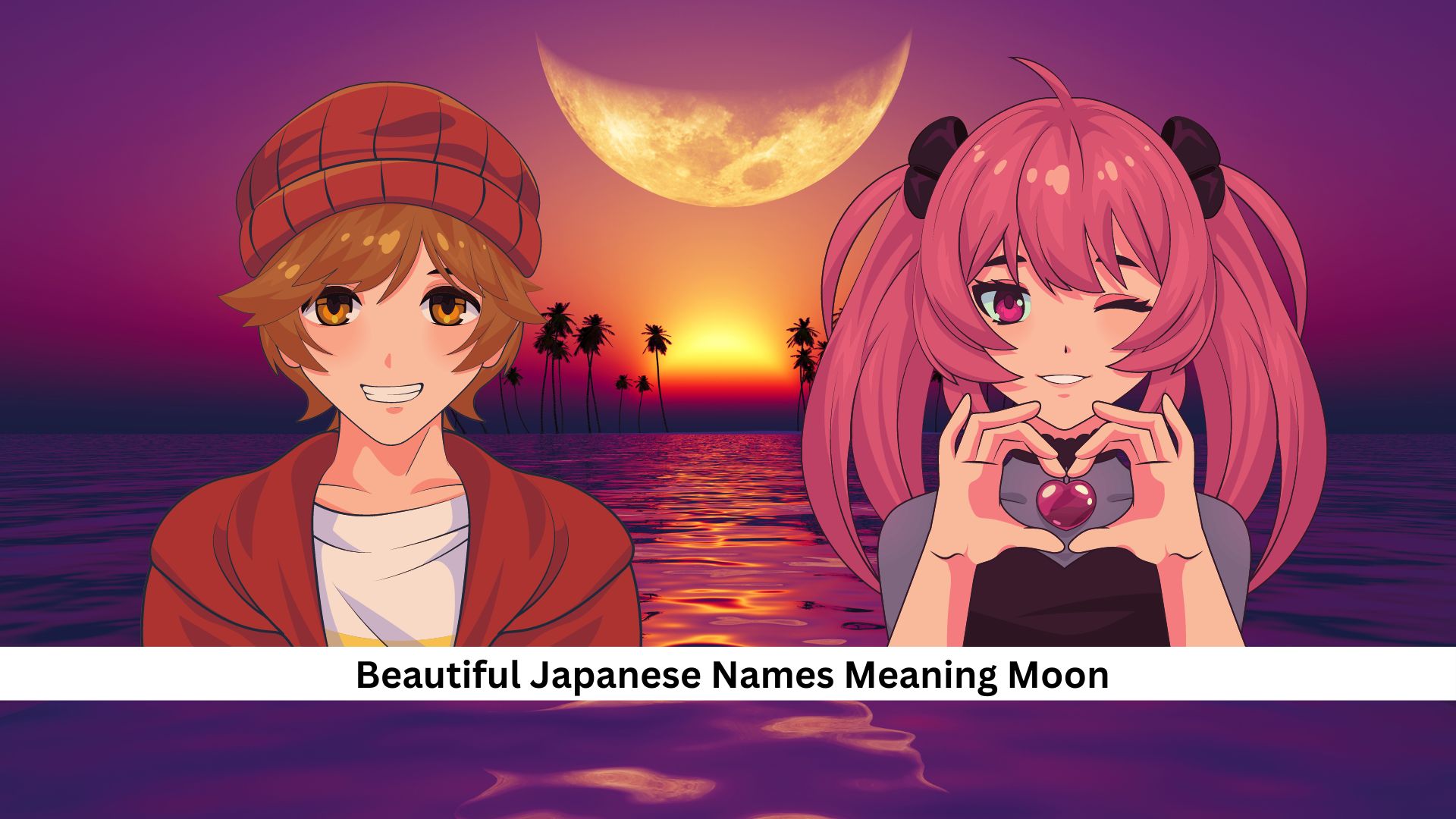When we look at how different cultures see the moon, Japan’s view is especially rich and poetic. They weave this celestial symbol into everyday life and traditions. By exploring more than 115 Japanese names inspired by the moon, we see not just the moon’s importance but also the deep values and aesthetics of Japanese culture. Each name tells a story, showing how the moon continues to shape how we see ourselves and our place in the universe.
115+ Beautiful Japanese Names Meaning Moon
Japanese Boy Names Meaning Moon
This category includes names that connect boys to the moon’s mystique and elegance. These names often embody qualities such as clarity, wisdom, and new beginnings, inspired by the moon’s phases and light. They reflect a sense of calmness and introspection, drawing from the moon’s serene presence in the night sky.
- Tsuki (月) – “Moon,” directly means moon, representing the celestial body.
- Getsu (月) – Another word for “moon,” symbolizing the moon in a different context.
- Mitsuki (満月) – “Full moon,” combining “mi” meaning full and “tsuki” meaning moon, symbolizing a full moon.
- Runa (ルナ) – Moon-inspired name, indirectly symbolizing the beauty and mystery of the moon.
- Yoichi (陽一) – “Shining Night,” combining “yo” meaning night and “ichi” meaning shining, symbolizing the moonlight.
- Akatsuki (暁) – “Dawn,” the time when the moon fades, symbolizing the transition from night to day.
- Gekko (月光) – “Moonlight,” directly means moonlight, representing the light cast by the moon.
- Mikazuki (三日月) – “Crescent moon,” combining “mi” meaning crescent and “tsuki” meaning moon, symbolizing the crescent moon shape.

- Tsukasa (月司) – “Moon ruler,” combining “tsuki” meaning moon and “sa” meaning ruler, symbolizing the governing aspect of the moon.
- Raito (ライト) – “Light,” like moonlight, symbolizing the light that comes from the moon.
- Getsumaru (月丸) – “Perfect moon,” combining “getsu” meaning moon and “maru” meaning perfect or round, symbolizing a perfect full moon.
- Tsukihiko (月彦) – “Moon prince,” combining “tsuki” meaning moon and “hiko” meaning prince, symbolizing a princely figure connected to the moon.
- Mangetsu (満月) – “Full moon,” directly means full moon, representing the fully illuminated moon.
- Ozuki (大月) – “Big moon,” combining “o” meaning big and “zuki” meaning moon, symbolizing a large, prominent moon.
- Shingetsu (新月) – “New moon,” combining “shin” meaning new and “getsu” meaning moon, symbolizing the new moon phase.
- Tsukito (月人) – “Moon person,” combining “tsuki” meaning moon and “to” meaning person, symbolizing someone connected to the moon.
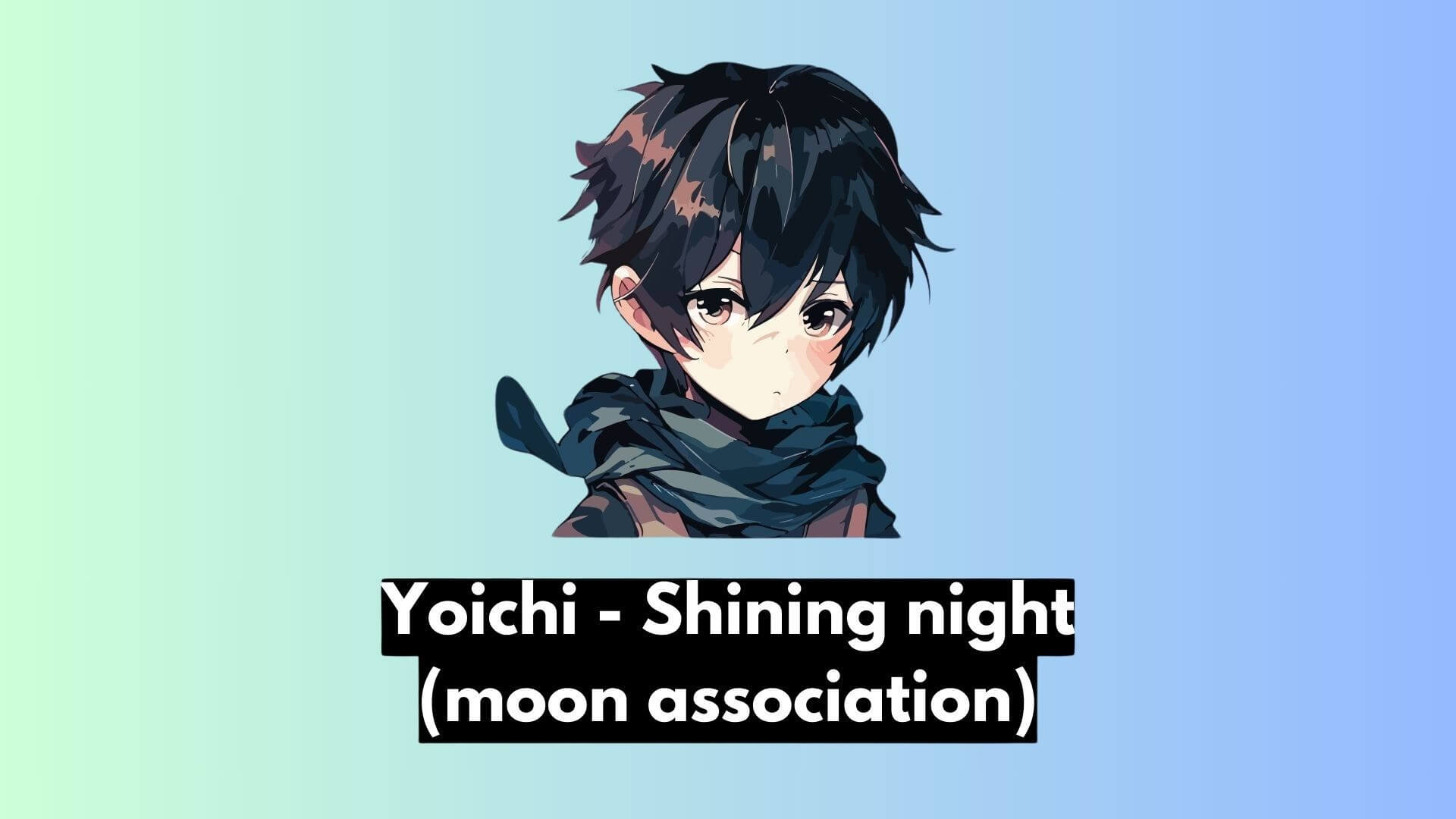
- Mikadzuki (三日月) – “Crescent moon,” combining “mi” meaning crescent and “kadzuki” meaning moon, symbolizing the crescent moon shape.
- Gengetsu (幻月) – “Mysterious moon,” combining “gen” meaning mysterious and “getsu” meaning moon, symbolizing the enigmatic nature of the moon.
- Tsukuyomi (月読) – “The moon god,” directly refers to the moon god in Japanese mythology, symbolizing the divine aspect of the moon.
- Tsukiomi (月海) – “Moon sea,” combining “tsuki” meaning moon and “omi” meaning sea, symbolizing the reflection of the moon on the sea.
- Izuki (芽月) – “Sprouting moon,” combining “i” meaning sprouting and “zuki” meaning moon, symbolizing the emergence of the moon.
- Tsukio (月男) – “Moon man,” combining “tsuki” meaning moon and “o” meaning man, symbolizing a person connected to the moon.

- Tsukine (月音) – “Moon sound,” combining “tsuki” meaning moon and “ne” meaning sound, symbolizing the gentle sounds associated with the moon.
- Getsuki (月季) – “Moon season,” combining “getsu” meaning moon and “ki” meaning season, symbolizing a time or season related to the moon.
- Tsukihito (月人) – “Moon person,” combining “tsuki” meaning moon and “hito” meaning person, symbolizing someone connected to the moon.
- Tsukimaru (月丸) – “Round moon,” combining “tsuki” meaning moon and “maru” meaning round, symbolizing the shape of the full moon.
- Tsukiha (月葉) – “Moon leaf,” combining “tsuki” meaning moon and “ha” meaning leaf, symbolizing the delicate connection between nature and the moon.
- Tsukishi (月志) – “Moon will,” combining “tsuki” meaning moon and “shi” meaning will, symbolizing the determination or influence of the moon.
- Geppei (月兵) – “Moon soldier,” combining “ge” meaning moon and “pei” meaning soldier, symbolizing a warrior associated with the moon.
- Tsukikage (月影) – “Moon shadow,” combining “tsuki” meaning moon and “kage” meaning shadow, symbolizing the shadow cast by the moon.
- Tsukishiro (月白) – “White moon,” combining “tsuki” meaning moon and “shiro” meaning white, symbolizing the bright, white light of the moon.
- Tsukiyo (月夜) – “Moon night,” combining “tsuki” meaning moon and “yo” meaning night, symbolizing a night illuminated by the moon.
- Tsukihana (月花) – “Moon flower,” combining “tsuki” meaning moon and “hana” meaning flower, symbolizing a flower associated with the moon.
- Tsukiakari (月明かり) – “Moonlight,” combining “tsuki” meaning moon and “akari” meaning light, directly symbolizing the light of the moon.
- Tsukiharu (月春) – “Moon spring,” combining “tsuki” meaning moon and “haru” meaning spring, symbolizing the spring season illuminated by the moon.
- Tsukitaro (月太郎) – “Big moon son,” combining “tsuki” meaning moon and “taro” meaning big son, symbolizing a prominent and important figure connected to the moon.
- Tsukikata (月形) – “Moon form,” combining “tsuki” meaning moon and “kata” meaning form, symbolizing the various phases or shapes of the moon.
- Tsukimi (月見) – “Moon viewing,” combining “tsuki” meaning moon and “mi” meaning viewing, symbolizing the tradition of admiring the moon.
- Tsukiichi (月一) – “First moon,” combining “tsuki” meaning moon and “ichi” meaning first, symbolizing the primary or most significant moon phase.
- Tsukishige (月茂) – “Moon growth,” combining “tsuki” meaning moon and “shige” meaning growth, symbolizing the waxing or increasing phases of the moon.
Japanese Girl Names Meaning Moon
Names in this category are designed to evoke the moon’s beauty and grace for girls. These names highlight qualities like purity, elegance, and a deep connection to nature. They are often associated with tranquility and allure, drawing inspiration from the moon’s captivating and gentle glow.
- Tsukiko (月子) – “Moonchild,” directly means moonchild, symbolizing a child connected to the moon.
- Mizuki (美月) – “Beautiful moon,” combining “mi” meaning beautiful and “zuki” meaning moon, symbolizing the beauty of the moon.
- Yuzuki (優月) – “Gentle moon,” combining “yu” meaning gentle and “zuki” meaning moon, symbolizing the soft and gentle light of the moon.
- Rumi (月美) – “Moon beauty,” combining “ru” meaning moon and “mi” meaning beauty, symbolizing the moon’s beautiful light.
- Akira (明月) – “Bright moon,” combining “aki” meaning bright and “ra” meaning moon, symbolizing the bright illumination of the moon.
- Hoshiko (星子) – “Star child,” often associated with the moon, symbolizing a child connected to the celestial bodies.
- Nozomi (望月) – “Moon’s hope,” combining “nozo” meaning hope and “mi” meaning moon, symbolizing hope inspired by the moon.
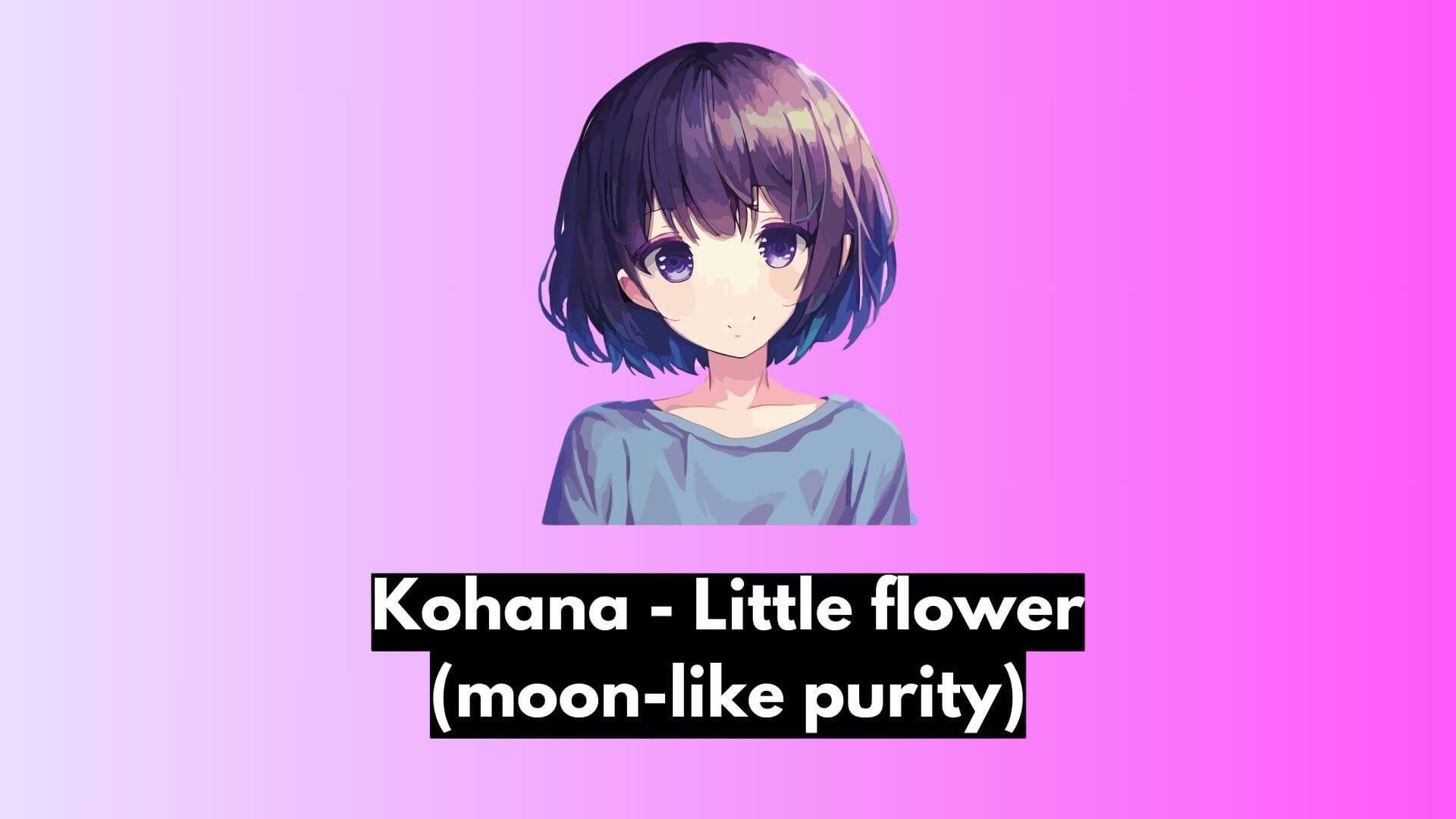
- Rin (冷月) – “Cold moon,” symbolizing the cool and serene nature of the moon.
- Suki (月姫) – “Loved moon,” symbolizing a beloved connection to the moon.
- Yue (月恵) – “Moon blessing,” combining “yu” meaning blessing and “e” meaning moon, symbolizing the blessings of the moon.
- Kohana (小花) – “Little flower,” symbolizing the moon-like purity and beauty of a small flower.
- Mika (三日月) – “New moon,” symbolizing the fresh start and new beginnings associated with the new moon phase.
- Natsuki (夏月) – “Summer moon,” combining “natsu” meaning summer and “ki” meaning moon, symbolizing the moon during the warm summer nights.
- Sayuri (小百合) – “Small lily,” symbolizing the delicate and glowing beauty of a moonlit lily.
- Tsukiumi (月海) – “Moon sea,” combining “tsuki” meaning moon and “umi” meaning sea, symbolizing the moon’s reflection on the sea.
- Akemi (明美) – “Bright beauty,” like moonlight, symbolizing the radiant and beautiful light of the moon.
- Hatsuki (初月) – “First moon,” combining “ha” meaning first and “tsuki” meaning moon, symbolizing the initial and important phases of the moon.
- Kaneko (金子) – “Golden child,” like the harvest moon, symbolizing the golden and rich light of the moon.
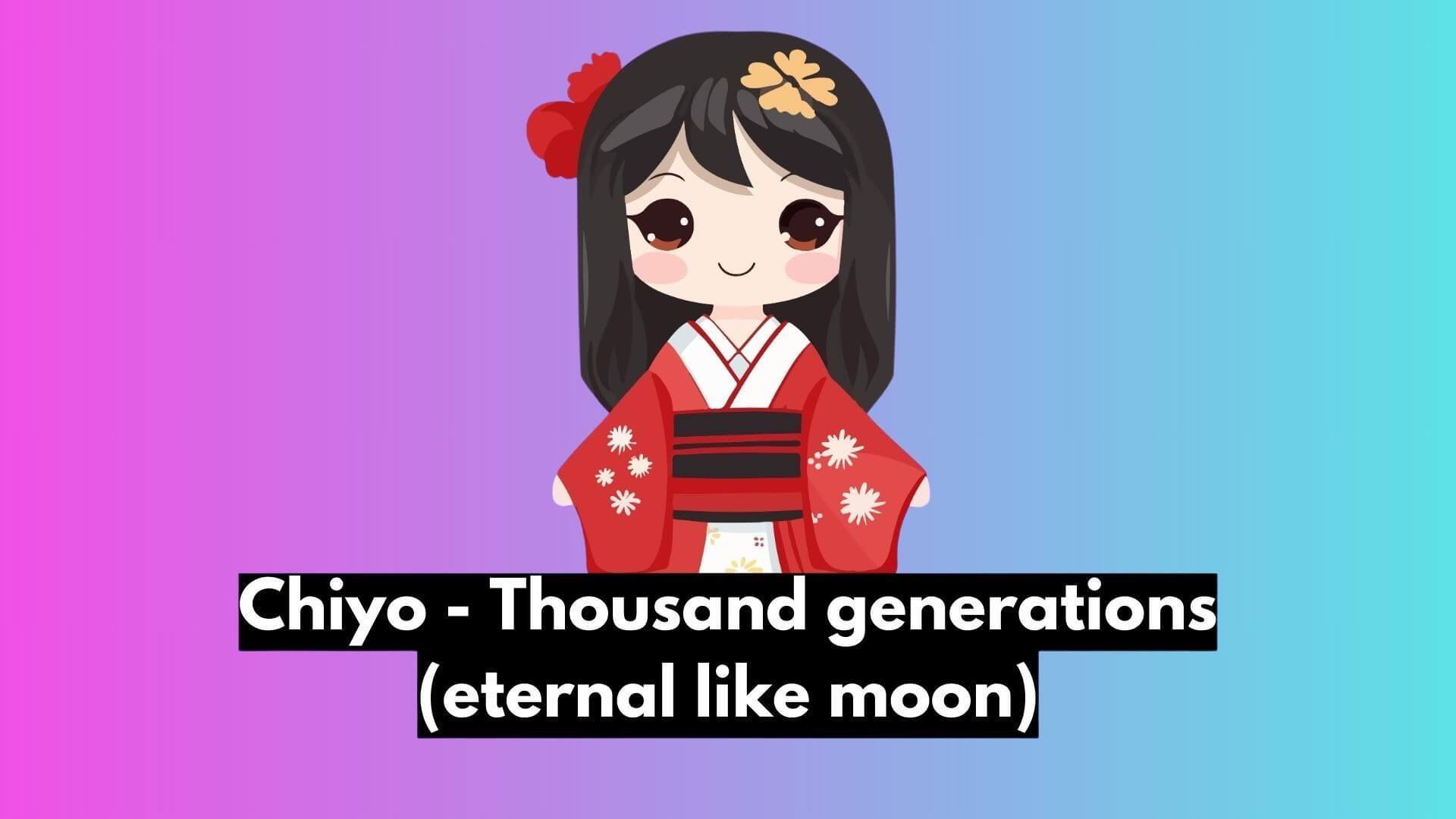
- Miyuki (美雪) – “Beautiful snow,” moon-like shine, symbolizing the bright and reflective nature of snow under moonlight.
- Ruka (月花) – “Bright moonflower,” combining “ru” meaning moon and “ka” meaning flower, symbolizing a flower that glows under the moon.
- Tsukasa (月司) – “Moon ruler,” combining “tsuki” meaning moon and “sa” meaning ruler, symbolizing a figure of authority associated with the moon.
- Yuki (雪) – “Snow,” moon-like brightness, symbolizing the bright and pure light of snow illuminated by the moon.
- Amaya (雨夜) – “Night rain,” associated with the moon, symbolizing the moon shining through a rainy night.
- Chiyo (千代) – “Thousand generations,” eternal like the moon, symbolizing longevity and the enduring presence of the moon.
- Hisako (久子) – “Long-lived child,” like the enduring moon, symbolizing longevity and the enduring nature of the moon.
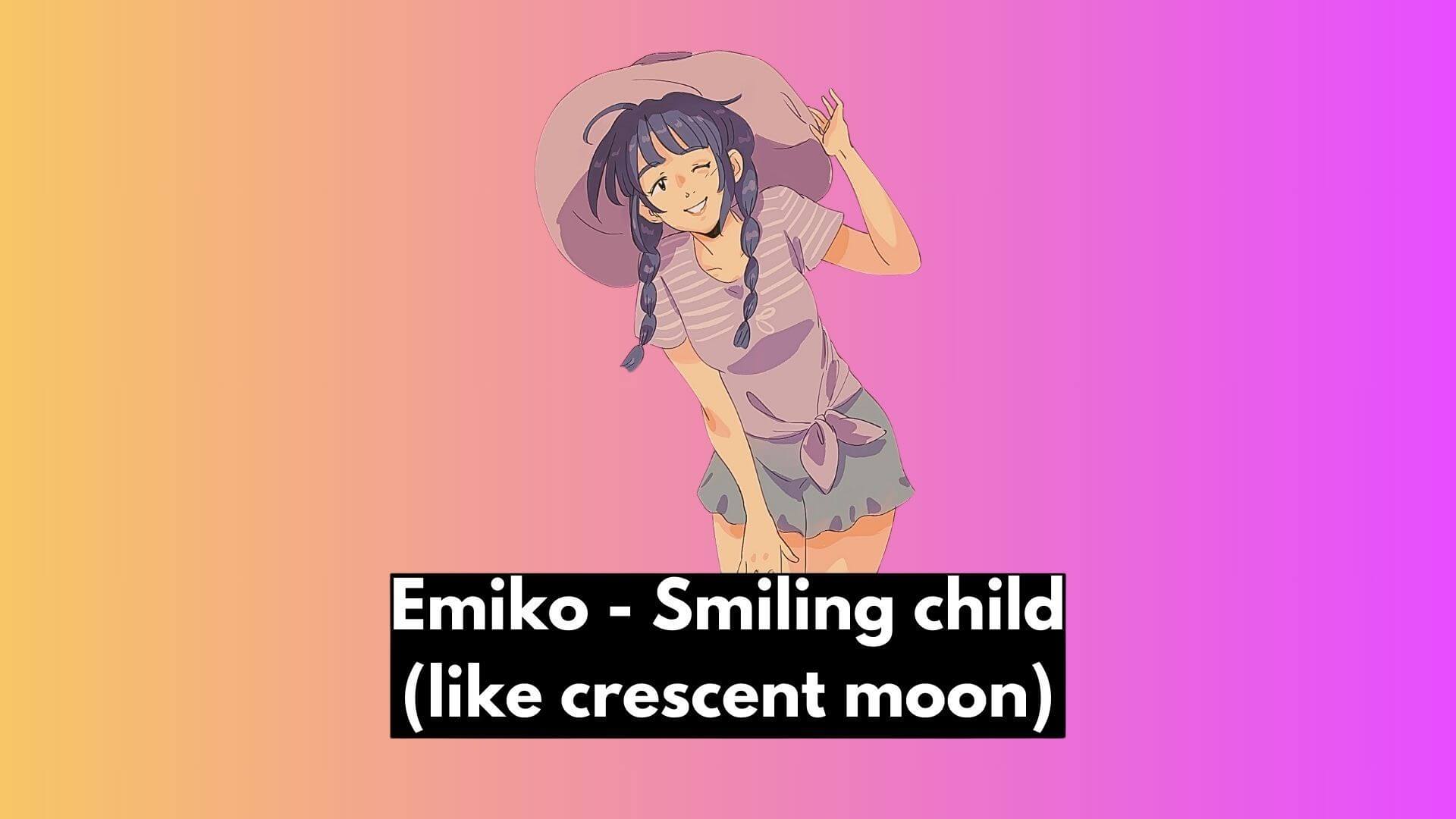
- Izumi (泉) – “Spring,” moon reflection, symbolizing the moon’s reflection in springtime waters.
- Kaguya (輝夜) – “Shining night,” symbolizing the moon’s radiant presence in the night sky.
- Michiko (美智子) – “Beautiful wisdom,” like the moon’s glow, symbolizing the serene and wise light of the moon.
- Rina (莉奈) – “Jasmine,” moon-white flower, symbolizing the pale and delicate beauty of jasmine under moonlight.
- Sakura (桜) – “Cherry blossom,” moon-pale, symbolizing the pale and fleeting beauty of cherry blossoms illuminated by the moon.
- Tsukimi (月見) – “Moon viewing,” directly means moon viewing, symbolizing the tradition of admiring the moon.
- Usagi (兎) – “Rabbit,” connected to moon folklore, symbolizing the mythical rabbit that lives on the moon in Japanese culture.
- Yoko (陽子) – “Sun child,” balancing the moon, symbolizing the complementary relationship between the sun and the moon.
- Aiko (愛子) – “Love child,” moon’s beloved, symbolizing a cherished and beloved connection to the moon.
- Emiko (笑子) – “Smiling child,” like a crescent moon, symbolizing the gentle and smiling shape of a crescent moon.
- Haruko (春子) – “Spring child,” moon in spring, symbolizing the presence of the moon during the spring season.
- Keiko (恵子) – “Blessed child,” by moonlight, symbolizing a child blessed by the light of the moon.
- Midori (緑) – “Green,” like the moon on leaves, symbolizing the moon’s light casting a greenish glow on foliage.
- Reiko (麗子) – “Lovely child,” as moon, symbolizing a child with the lovely qualities of the moon.
- Sora (空) – “Sky,” home of the moon, symbolizing the vast sky where the moon resides.
Also, check out list of Japanese Names That Mean Blood For Boys & Girls.
Unisex Names Inspired by the Moon
Unisex moon-inspired names offer a unique and timeless appeal, suitable for any gender. These names represent balance, harmony, and completeness, transcending traditional gender norms. They draw from the moon’s universal symbolism of illumination, mystery, and celestial beauty, making them versatile and meaningful choices.
- Luna (ルナ) – Latin for “moon,” directly means moon, symbolizing the celestial body.
- Ayla (アイラ) – Turkish for “moonlight,” symbolizing the gentle and illuminating light of the moon.
- Jaci (ジャシ) – Native American for “moon,” directly means moon, symbolizing the celestial body in Native American culture.
- Neoma (ネオマ) – Greek for “new moon,” combining “neo” meaning new and “ma” meaning moon, symbolizing the new moon phase.
- Qamar (カマル) – Arabic for “moon,” directly means moon, representing the celestial body in Arabic.
- Zuki (月) – Japanese, short for “tsuki” (moon), directly means moon, symbolizing the moon in Japanese culture.
- Indu (インドゥ) – Hindu for “bright drop,” referring to the moon, symbolizing the bright and beautiful nature of the moon.
- Mahina (マヒナ) – Hawaiian for “moon,” directly means moon, representing the celestial body in Hawaiian culture.
- Esca (エスカ) – Latin origin, meaning “food,” symbolizing the moon’s light that nourishes and guides.
- Dawa (ダワ) – Tibetan for “moon,” directly means moon, representing the celestial body in Tibetan culture.
- Aylin (アイリン) – Turkish for “halo of the moon,” symbolizing the glowing ring around the moon.
- Chandra (チャンドラ) – Sanskrit for “moon,” directly means moon, symbolizing the celestial body in Sanskrit.
- Luan (ルアン) – Portuguese for “moon,” directly means moon, representing the celestial body in Portuguese.
- Mani (マニ) – Norse god of the moon, symbolizing the deity associated with the moon in Norse mythology.
- Yueliang (月亮) – Chinese for “moon,” directly means moon, representing the celestial body in Chinese.
- Sasi (サシ) – Thai for “moon,” directly means moon, representing the celestial body in Thai culture.
- Arak (アラク) – Armenian for “new moon,” symbolizing the new moon phase.

- Nox (ノックス) – Latin for “night,” symbolizing the time when the moon shines brightly.
- Vesper (ヴェスパー) – Latin for “evening star,” seen with the moon, symbolizing a celestial body visible alongside the moon.
- Ravi (ラヴィ) – Indian, means “sun,” symbolizing the counterpart to the moon.
- Lusine (ルシネ) – Armenian for “moon,” directly means moon, representing the celestial body in Armenian culture.
- Skyler (スカイラー) – Dutch origin, meaning “sheltering,” symbolizing the protective and gentle light of the moon.
- Thule (テューレ) – Greek for “the far north,” land of the midnight sun, symbolizing regions where the moon’s presence is significant.
- Amani (アマニ) – Swahili for “peace,” symbolizing the calm and serene light of the moon.
- Zira (ジラ) – African, means “moonlight,” symbolizing the gentle and illuminating light of the moon.
- Cas (カス) – Latin origin, short for “Cassiopeia,” a constellation related to the moon, symbolizing celestial connections.
- Vega (ベガ) – Arabic origin, bright star seen with the moon, symbolizing a celestial body visible alongside the moon.
- Nova (ノヴァ) – Latin for “new,” symbolizing the new moon phase.
- Orion (オリオン) – Greek hunter constellation seen with the moon, symbolizing a prominent celestial figure visible alongside the moon.
- Ciel (シエル) – French for “sky,” symbolizing the vast sky where the moon resides.
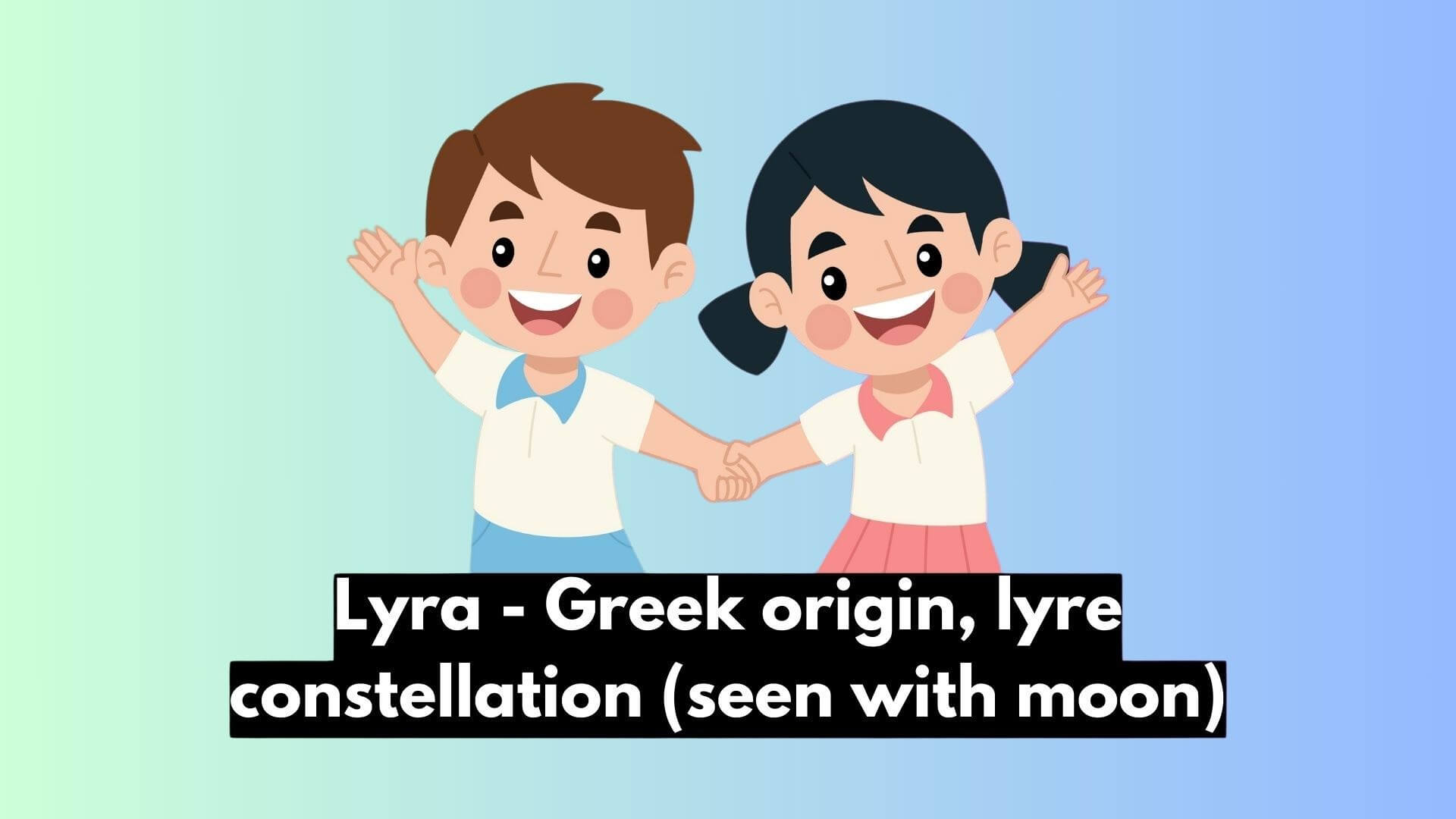
- Astraea (アストレア) – Greek for “star maiden,” celestial like the moon, symbolizing a divine connection to the moon.
- Lior (リオール) – Hebrew for “my light,” symbolizing the gentle and personal light of the moon.
- Zephyr (ゼファー) – Greek god of the west wind, moves clouds around the moon, symbolizing the interaction between wind and the moon.
- Skye (スカイ) – Scottish origin, means “sky,” symbolizing the vast sky where the moon resides.
- Lyra (ライラ) – Greek origin, lyre constellation seen with the moon, symbolizing a celestial body visible alongside the moon.
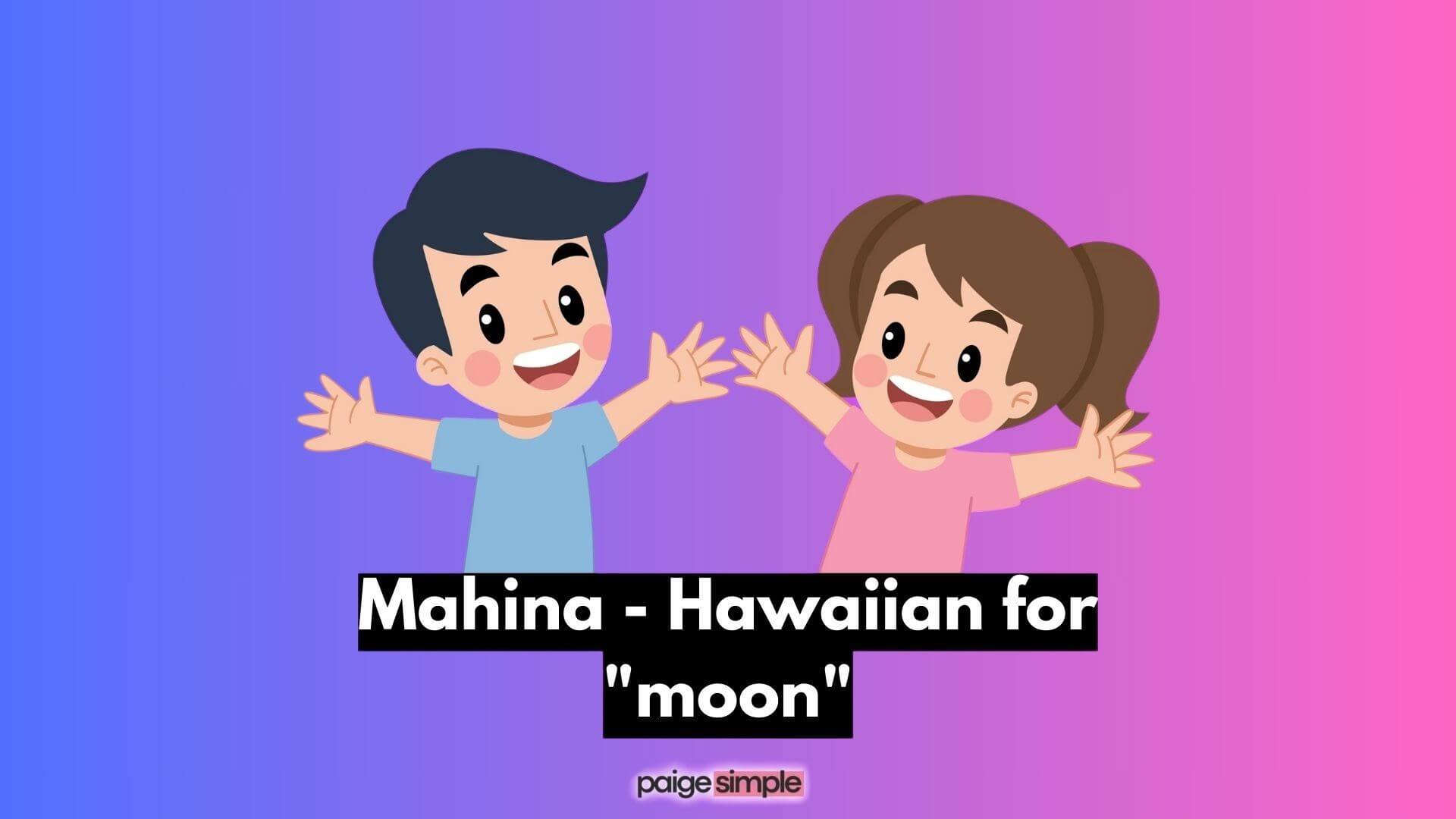
- Aether (アイテール) – Greek primordial air deity, surrounds the moon, symbolizing the ethereal presence around the moon.
- Eos (エオス) – Greek goddess of dawn, when the moon fades, symbolizing the transition from night to day.
- Io (イオ) – Greek moon of Jupiter, symbolizing a celestial body associated with the moon.
- Selene (セレーネ) – Greek goddess of the moon, directly representing the moon deity in Greek mythology.
- Yue (月) – Chinese for “moon,” directly means moon, representing the celestial body in Chinese culture.
Conclusion
In conclusion, Japanese names related to the moon show a deep respect for their culture and a love for the stars. These names are full of tradition and creativity. They give us a wide range of meanings that people cherish over time. These names do more than just celebrate the moon’s beauty and symbolism; they keep us connected to the awe it inspires in everyone. Picking a moon-themed Japanese name links you to timeless beauty and deep cultural roots.
Don’t forget to bookmark our site The Jeep Diva for more such unique names ideas.

Sara Sabrena is an experienced content writer and a passionate movie fan. She loves analyzing movies and writes engaging reviews and in-depth analyses of films, from independent ones to big blockbusters. With her background in literature and media studies, Sara adds depth and her own unique viewpoint to her writing.

